
Gay indie rock band The Hidden Cameras released their new album Origin:Orphan today. It gave Daniel Villarreal the perfect opportunity to revisit their old records — and see whether they’re still as hardcore.
There’s an expression that goes, “If you’re not a punk at 20, there’s something wrong with you but if you’re still a punk at 30, there’s something wrong with you.” At 20, Joel Gibb of The Hidden Cameras composed some of the most uplifting pop songs about being peed on and sniffing cum that you’ve ever heard.
Their first two albums, The Smell of Our Own and Mississauga Goddam, used masturbation, anal douching, and gagging on cock not as throwaway shock humor, but as analogies for immaturity, body obsession, and growing up too fast. It was beautifully confessional music with brutal symbols that any alienated gay guy could relate to. The albums are still pretty revolutionary, considering all these songs had organ and guitar arrangements straight out of church — and that most indie rockers would rather gaze at their shoes than ever discuss sex, least of all gay sex.
Then suddenly, on their third album Awoo, almost all the Cameras’ attention to raunchy gay sex disappeared.
Sure, Awoo had some innuendo about being bent over, sucking on “lollipops,” and maybe even one song about auto-erotic asphyxiation, but the next gayest tracks were about swooning over kneecaps and talking to your dad. It also had a song called “She’s Gone.”
She?!
You had to wonder whether Joel Gibb had traded in the piss play and leather sex that helped make his band famous just to end up crafting innocuous pop songs that straight people would enjoy.
But Gibb is 32 now, and his band’s latest album Origin:Orphan shows he hasn’t traded gay sex for popular appeal; he’s just stopped focusing on his cock and started refining his craft.

Origin’s continued exploration of religion and alienation feature lyrics more sophisticated than anything in Awoo. And though the analogies have become more universal and less overtly sexual, they’re just as brutal and confessional as in the first two albums. Origin:Orphan’s titular track has Gibb wondering if he’s just as whorish as the whores that created him; “Kingdom Come” ponders whether waiting for a lover makes you a saint or a slave; and “The Colour Of A Man” compares stoic men to ash-colored statues deadening everything they touch. Whether you’ve dated an emotionally absent lover or have been one yourself, each song implicates listeners from both sides of the bed.
Most impressive is how confidently Origin surpasses the guitar-centric compositions of Smell and Mississauga by realizing the full emotional potential of drums, horns, and electrical instruments in grand orchestral arrangements.
In retrospect, Awoo sounds like the experimental precursor that helped Gibb hone tighter, more resonant productions with larger live performances in mind. The album still features the band’s trademark playful rock ditties like “In The NA” and “The Little Bit,” with Gibbs vocal exuberance and complex arrangements yielding many satisfying surprises; although “Do I Belong?” and “Underage” sound adolescent and underdeveloped compared to the album’s other chamber pop gems. And while’s it a rewarding listen, Origin:Orphan’s 1980’s pastiche is neither pointedly gay nor revolutionary.
What is revolutionary, though, is Gibb’s overall approach to making music. He first began creating The Hidden Cameras’ songs without any formal training on a four-track that he learned to use in 20 minutes. Since then, he’s written, scored, and produced every Hidden Cameras song, designed their CD covers, directed their videos, chosen venues, promoted shows, and designed staging. The band’s name refers to the ever-watchful eyes inside our own heads that discourage self-expression, and Gibb’s independent handling of the band has allowed him to dismantle his own hidden camera and really push his own capacity for emotional honesty. He acknowledges that each fan appreciates different aspects of the music and his live performances encourage each to rejoice in the aspects they love most.
Gibb loves it most when fans offer to take part in their shows. In the past, their concerts have featured ninja-masked go-go boys doing interpretive stripping, graveyard zombies banging their bones in an instrumental interlude, and energetic dancers handing out lollipops to the audience. The band also used to perform in porn theaters, art galleries, and abandoned churches in North America and Europe. Though they’ve moved to more upscale digs, they still play the occasional soccer field and always try to utilize local creative resources. As a result, each show becomes a unique celebration—Gibb says, “the things that make live music worthwhile.” So it seems a natural extension of this collaborative impulse that’s compelled Gibb to start developing Origin:Orphan’s music into a Berlin theatrical music production. It’ll provide a community of artists and art lovers with the opportunity to explore the theme of “the universal orphan” alongside Gibb in an international context.

But no matter how sunny and inviting Gibb’s revolution seems, as with any revolution, a white hot undercurrent of discontent runs through it. His second album concludes with the title track “Mississauga Goddam,” a nod to Nina Simone’s 1964 protest song “Mississippi Goddam.” Though Simone’s song sounds like a show tune, she wrote in response to the assassination of civil rights leader Medgar Evers and in opposition to those who said civil rights activists should work more slowly. In it she sings, “Picket lines, school boycotts/ they try to say it’s a Communist plot / all I want is equality for my sister my brother my people and me… Do things gradually… bring more tragedy.”
Gibbs’ song (named after the Toronto suburb where he grew up) is one of The Hidden Cameras’ angriest yet most melancholy tracks of all time. For him, the real tragedy isn’t murder, but that his community values sameness as a way of life. Gibb sings, “Mississauga people carry the weight of common evil / and go about their lives / with a whisper and a whine… I’ll be wearing my disguise / Until I lead my life from Mississauga goddam.”
Gibb returned to his hometown to play Toronto Pride in 2008. When interviewed beforehand about his pointed gay content, Gibb said, “It’s just a matter of being who you are and just being natural about these things. If you’re a songwriter of course you have to have politics. Your identity that can be political, just representing that.”
Gibb used his sexuality as a defiant identity in his first two albums. After a childhood being told we’re different, it’s no wonder that some of us want to rip that system apart and force itself to look at its orphans. But his multimedia collaborations reveal the multitude of ways we can challenge that system, not just sexually, but with every inch of our creative being.

 Daniel Villarreal thanks interrobang, The Impatient Penguin, Crying Game, Bootch, and Doctor Who's Manwife for their help on this article. Daniel attended Dallas Pride this weekend with his older brother—that guy kicks ass.
Daniel Villarreal thanks interrobang, The Impatient Penguin, Crying Game, Bootch, and Doctor Who's Manwife for their help on this article. Daniel attended Dallas Pride this weekend with his older brother—that guy kicks ass.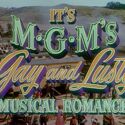
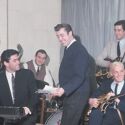
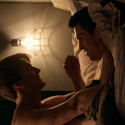
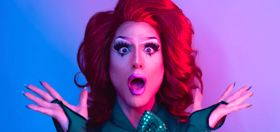

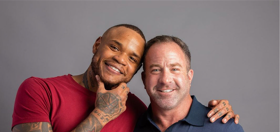

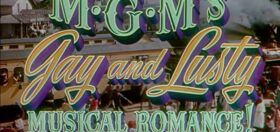
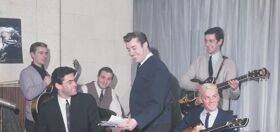


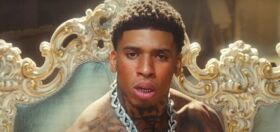


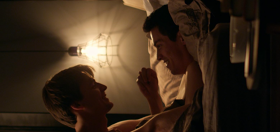

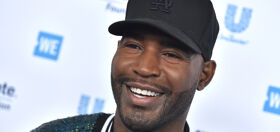

z
Love The Hidden Cameras!
RomanHans
I’m a huge fan, but let’s be realistic. All their CDs sit in the shadow of their first.
j
“most indie rockers would rather gaze at their shoes than ever discuss sex” The author of this article doesn’t know many indie kids, does he?
Daniel Villarreal
@j: Indie ROCKERS, j. Find me an indie rock song about jism, penetration, or anal douching, and I’ll take it back.
V
@Daniel Villarreal:
You have a sadly, sickly narrow conception of what sex is about.
irish eoin
LOVE the Hidden Cameras! Hope they play Dublin, Ireland soon!!!! See you there!
donkeytrot69
@V: So, just to be clear, you agree with me that there aren’t many indie rock songs about actual sex?
not a fan
hidden cameras music is a repetitive (badly repetitive) overproduced drivel using shock value to attract attention. but gays will support practically anything targeted specifically at them. stephen merrit songwriting it ain’t and if you can’t tell the difference, stop writing about music.
supermarky
hello I am logged in, can’t find any “contact us” link… so am leaving a comment here I hope might find its way to someone who can help spread the word about an
amazing opera with a queer protagonist that is playing at calperformances this weekend at UC Berkeley… forgive me for pasting in a little info, but I hoped / thought you and your readers might want to know more about this pretty startling work that is being mounted “A House in Bali” by Evan Ziporyn based on the book by Colin McPhee:
http://en.wikipedia.org/wiki/Colin_McPhee
There are clips from the opera on the calperformances website that are just amazing I think incredibly engaging world fusion modern music with gamelan and this leading NY avant garde ensemble Bang on a Can All Stars and western operatic singers and Balinese singers and dancers. I’m coming up for it. It’s really sad that Lou Harrison is not around for this. I could totally see him showering EZ’s forehead with kisses and passing some kind of mantle to him…
http://www.calperfs.berkeley.edu/presents/season/2009/20th_century_and_beyond/ahib.php
evidently the staging is going to be kind of mindblowing for this performance, it having previously been done outdoors in Bali.
I think they are actually having a really hard time selling tickets so there may be some kind of rush/low price deal on it…
hope you and some of your friend might check it out! thanks
Chris Maher
Chris “supermarky” Maher on facebook
Los Angeles
Rube
Sorry not a fan but I’m not a fan of your imput. The Hidden Cameras are much less repetitive than most pop acts & when they do it, they do it well (for the most part, everyone has their slip-ups). I have no idea where you get the overproduced bit from because I can hear plenty of dynamics in Hidden Cameras tunes compared to most things on radio. The “shock” is part of the hook and all (good) artists have those which is only a part of what makes the band amazing. I have never thought of The Hidden Cameras to be just aimed at me or some sort of camp because they’ve always had important things to say but more importantly they do it with style whereas Merrit is often too short and dull even when he’s trying to pull interest through being shocking. Give up the ghost & embrace the love.
Gord McLaughlin
This is a really well written article… best writing about music that I’ve read in a while. It’s the kind of thing that would make me give these guys a listen….